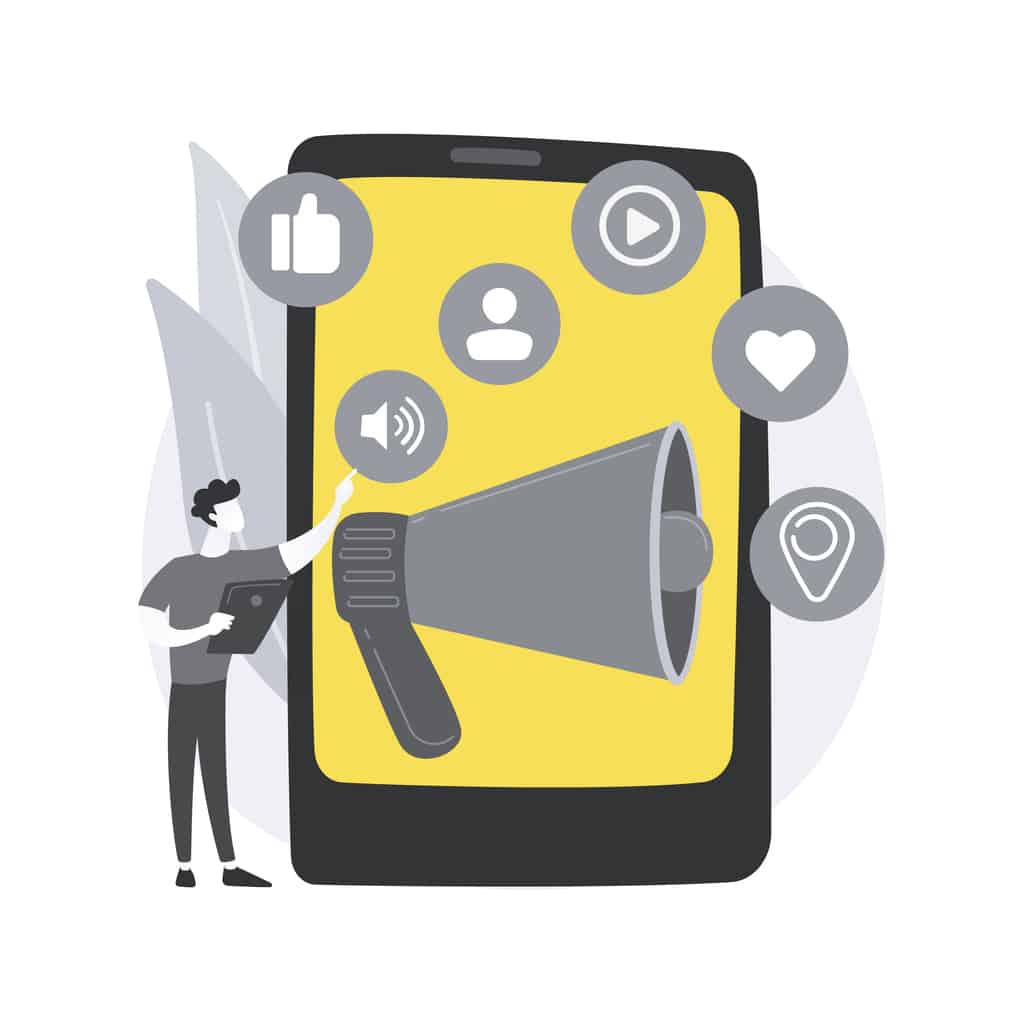“The more you listen, the more you know” is something marketers are taking seriously in the current scenario. I stand strong on this statement because brands and organizations have started leveraging a technique called Social Listening to improve business outcomes.
Wondering what it is?
Probably, you have opened the right page as we’re extensively discussing Social Listening, its importance, strategies used, and much more. So read the entire article to understand this trending strategy used by marketers to uplift their brands.
What is Social Listening?
Social listening is the tracking of conversations or mentions about your brand or related attributes on social platforms. If anybody praises your brand, you will get to know. If someone writes a bad review, you get to know that too. Literally, anything related to your brand or industry you will get to hear about by leveraging this technique. Recently, the term gained popularity as marketers are shifting their focus to techniques that closely align with social media from traditional research-centric.
The data obtained from this activity can be used to identify consumer insights, track new influencers, discover actionable insights, etc.
Apart from social media, the impact of Social Listening is imperative in the market research field. Quite often, companies are using this technique to identify the customer needs, gauge their opinion, determine the current trends and gather as much information as possible.
Social listening does not confine to tracking your brand mentions or competitors, and its activity has been differentiated into three different categories – tracking and listening to your customers, general public, and competitors.
One of the Best Examples of the Social Listening Strategy Application
Netizens are very active on social media these days. Any activity in their daily life becomes a part of the social media rumble, and sometimes it even gets viral. They speak about the products purchased, food consumed, and whatnot. Every moment of their life, be it positive or negative, has its presence on social media. Trust me, this has a significant impact on anybody who reads or comes across it.
For example, see this post of a Tesla owner:
The above post was made by Jaehwan Cho when he was unable to connect to his Tesla car. The social listening strategy of Tesla was top-notch, as the CEO was immediately notified about this. And within a few hours, he set out to fix the issue.
The swift engagement with the product user and resolving the issue at the earliest by the company’s CEO has shown how much the brand values the customers. This goodwill gesture has a direct impact on the prospective customers, as it instills confidence amongst them.
Below is an appreciation post by a fellow Twitterati.
Essential Social Listening Tips
So how do I adopt Social Listening for my brand/business? If this question is circling your mind, we have some essential tips to set you in the right direction.
1. Hunt for the right keywords and topics
Finding and shortlisting the most relevant keywords related to your business is an effective social listening strategy.
Your keyword shortlisting has to be periodical as it keeps on updating over time. And there will be new search queries arising that you have to stay updated with. Some of the queries that you can include in your shortlisting social listening queries are:
- Product/services name
- Brand name
- Handles relevant to your business
- Trending topics in the industry
- Competitor names and their relevant products
- Hashtags that are relevant to your brand and the industry
This activity helps brands identify when audiences tweet or speak about their brands/products/services on any social platform.
2. The social platforms you have to focus on for Social Listening
You literally cannot engage with your audience in the same way across all the social platforms. Each platform has its tone and professionalism that one needs to identify to stay on top of their game. For example, you cannot use the same tone of engagement on Linkedin as you do on Twitter, Facebook, or Instagram.
You have to initially figure out where the audience is talking more about your brand and increase the engagement on those platforms. And at times, you can join in an engaging conversation to figure out a new feature that can add value to your business. And Twitter and LinkedIn are one of the best platforms for Social Listening.
3. If you don’t have the bandwidth don’t cast a wider net
The wider you cast your search for a keyword, the more the results will be in your bucket. And you might reach the end of the world by the time you shortlist and find which topics are relevant to your business.
For example: If you put in your keyword as shoes, there will be thousands of conversations happening related to shoes as even a minor mention like ‘my shoes look good’ and ‘shoes got wet’ can land in your inbox, and you will have to deal with an enormous amount of data.
Hence, it is better to narrow your search to what your brand/product is related to. The more targeted the Social Listening search is, the more refined your results are.
4. Discuss the data gained through Social Listening with your team
Despite gaining comprehensive information related to your products/services/brand, if you keep it to yourself and do not share it with the relevant teams, this whole process will be a waste of time. I’m saying this as every bit of information obtained during the process can be utilized for making actionable insights.
For example, the audience might be speaking about a flaw that needs fixing, a new feature that can be introduced, or areas where there can be an improvement. Hence, it is crucial to share the data with the relevant teams to benefit from this process.
How Social Listening can Benefit Your Business?
I had a personal experience once when my phone was stolen. I had tweeted about it, and the City Police Commissioner’s office directly intervened and set out to resolve the issue. Such is the power of Social Listening, as it benefits both the brand and the audience. Now, let’s get deeper into how it can benefit your business.
1. Keeping up with the competitors
Maintaining your Social Listening strategy at the top level can give you an edge over your competitor as you can capitalize on any negative traction they gain and try to attract their customers with a good strategy. It all depends on the timing and presence of mind.
The post above shows the age-old Twitter war running between Burger King and Wendy’s. And every time Wendy’s ends up roasting their competitor.
2. Avert a crisis before it’s too late
Social listening allows one to track the behavior and sentiments of users in real-time. This metric can be used to check and rectify any issues faced by customers/ audience before it is escalated. Just like how Tesla CEO’s stitch-in-time-saves-nine scenario handled the crisis, which boosted the brand’s image.
3. Product Innovation and Market Research
Listening to the industry chatter about various products can give you insights into what has been working for them, what is not, and what features audiences are expecting from a product.
This data is the holy grail for the customer service, marketing, and product teams as they can devise an actionable plan to incorporate the possible suggestions into their products. Additionally, integrating a social media wall on your website allows you to monitor and display real-time customer feedback and discussions, providing even deeper insights into customer sentiment and expectations.
4. Golden tool for public relations
Customers are very vocal these days, and they don’t think twice about posting about a brand or service. It can turn out to be positive or negative, and the task of protecting the brand image entirely rests on the shoulders of the PR team.
And that is where Social Listening comes to the rescue of PR professionals as this strategy helps to understand the audience sentiment, generate new ideas, formulate marketing strategies, identify new markets and customers, and many more.
What are the tools available for Social listening?
With various tools available online for the social listening process, I felt like initially, you must go ahead with the free tools to understand how this process works. Google Alerts, Twitter Analytics, Facebook Ads, etc. are some of the widely used social listening tools.
My favorite tool: Google Alerts
It’s the search engine’s tool and is my personal favorite as I have used it for quite a while. You can set up an alert to get notifications related to the keywords via email.
And if you click on the More Options button, you will see a dropdown with filters.
The How often filter helps you set the frequency at which the tools should scan the world wide web for any mentions of the keyword. The sources option lets you choose from where the mentions have to be picked up from.
And once you fill in the filters, enter your email address and click on the Create Alert button to receive the notifications via email.
If you are keen to tap into the power of Social Listening, you might as well check out these advanced tools like Mention, Buzzsumo, Buffer, Netbase, Trackur, Brandwatch, Hootsuite, etc, that offer advanced search options across social platforms, but comes at a price.
Concluding thoughts
We have reached the end of our article, and I hope you found the information you were looking for. If not, kindly drop in your queries in the comment section.
Social Listening is just one of the many techniques Digital Marketers used to increase their brand engagement. If you would like to learn about more such techniques and strategies that can make you an industry-ready digital marketing professional, check the PG Program in Strategic Digital Marketing. The program can complement your digital marketing journey by imparting practical experience in organic and paid marketing techniques.








